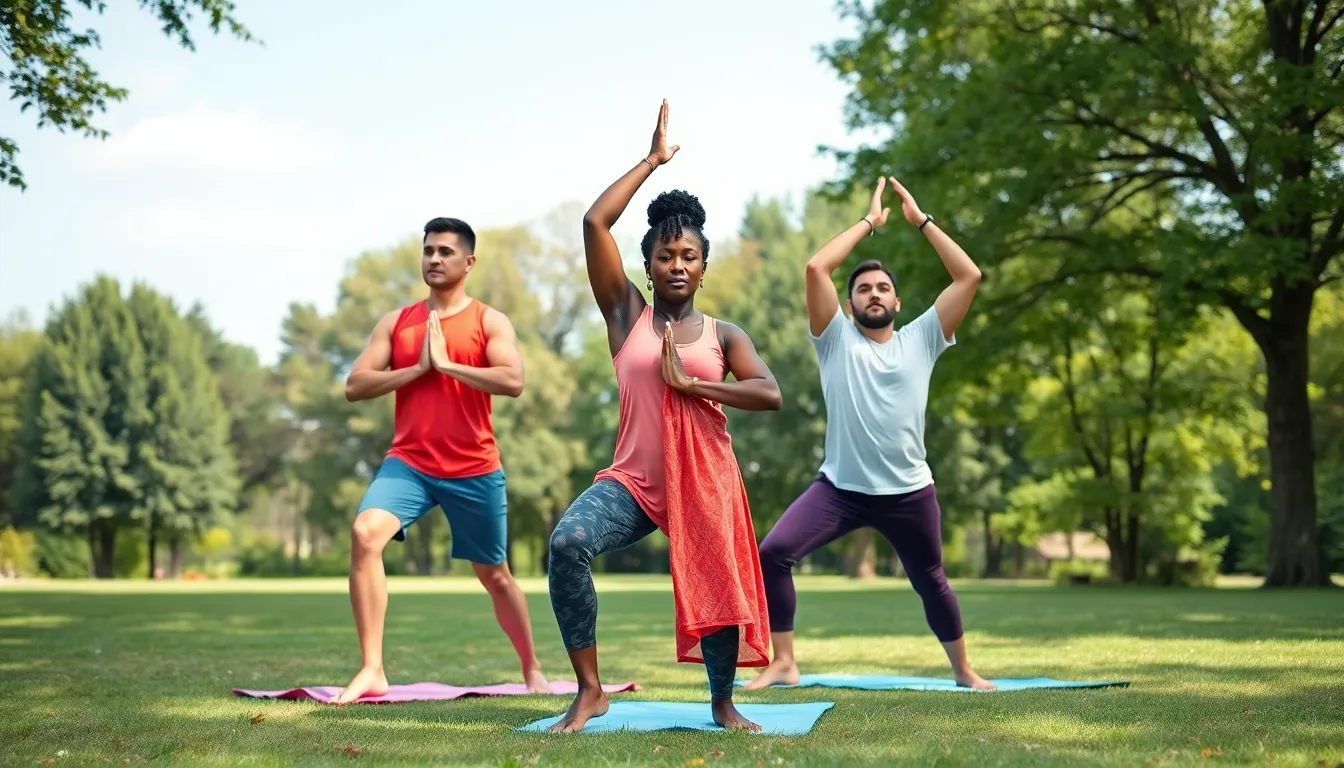In a world that often feels like a circus, juggling work, family, and personal time can seem impossible. Yet achieving balance isn’t just a dream; it’s a necessity for a happier, healthier life. Imagine waking up each day feeling like a well-oiled machine instead of a frazzled mess. Sounds good, right?
Table of Contents
ToggleWhat Is Achieve Balance?
Achieve balance refers to the effective distribution of time and energy among various aspects of life, such as work, family, and personal interests. This concept emphasizes the importance of creating harmony within daily routines, leading to increased overall satisfaction. Individuals find that prioritizing tasks and setting clear boundaries helps facilitate this balance.
Practicing time management allows for a clearer structure in one’s day, enabling focused attention on important areas. Achieving this balance leads to improved mental and physical health. Research indicates that individuals who manage their time well often report lower stress levels and greater well-being.
Effective communication plays a significant role in achieving balance. Sharing responsibilities within a family setting or team workplace fosters a collaborative atmosphere, reducing the burden on any single person. Additionally, dedicating time to personal interests and self-care is vital for maintaining equilibrium and avoiding burnout.
Adopting a flexible mindset also contributes to finding balance. When unexpected challenges arise, individuals who adapt quickly to change are more likely to maintain stability in their lives.
Implementing strategies such as setting realistic goals and regularly evaluating progress significantly enhance the ability to achieve balance. These methods create a roadmap for personal development, making it easier to navigate the complexities of modern life.
Importance Of Achieving Balance

Achieving balance plays a crucial role in personal happiness and overall health. Striking a proper balance enables individuals to manage responsibilities effectively while enjoying life.
Physical Well-Being
Physical well-being significantly benefits from maintaining balance in daily life. Regular engagement in physical activities, such as exercising three to four times a week, promotes vitality and energy. Healthy eating habits contribute to physical health, improving mood and stamina. Prioritizing sleep is vital; adults need 7 to 9 hours of quality sleep each night to function optimally. Creating a routine that integrates exercise, nutrition, and rest fosters resilience against stress. Balance encourages individuals to listen to their bodies, ensuring they give themselves adequate time for recovery and relaxation.
Mental Well-Being
Mental well-being thrives when individuals achieve balance in their lives. Cultivating mindfulness practices, like meditation or deep breathing, helps reduce stress and improve focus. Setting aside at least 15 minutes daily for reflection can enhance emotional clarity. Maintaining social connections plays a critical role; engaging with friends or family regularly strengthens support systems. Reducing screen time and limiting distractions fosters better concentration and mental clarity. Prioritizing hobbies and personal interests allows individuals to recharge and sustain enthusiasm. Overall, balance supports a healthier, more positive mindset, ultimately leading to enhanced quality of life.
Strategies To Achieve Balance
Achieving balance in life requires intentional strategies. Effective planning and structure make a substantial difference.
Time Management Techniques
Prioritizing tasks provides clarity on what matters most. Utilizing tools like calendars and to-do lists helps individuals visualize their commitments. Setting specific deadlines for tasks ensures focused efforts towards completion. Break larger projects into smaller, manageable chunks. This approach reduces feelings of overwhelm and promotes steady progress. Scheduling regular breaks prevents burnout, allowing time for rejuvenation. Establishing a routine establishes predictability, making it easier to navigate daily responsibilities. Tracking time spent on various activities enhances awareness and identifies areas needing adjustment.
Mindfulness Practices
Practicing mindfulness fosters a greater awareness of the present moment. Techniques such as meditation or deep breathing contribute to reduced stress levels. Regular mindfulness exercises encourage emotional regulation and clarity of thought. Engaging in mindful activities, like yoga or tai chi, promotes physical and mental harmony. Integrating gratitude journaling into daily routines cultivates a positive mindset. Making time for nature walks supports mental well-being and enhances relaxation. Connecting with others through meaningful conversations builds social bonds and enriches personal experiences. Prioritizing these mindfulness practices strengthens the ability to maintain balance amidst life’s demands.
Common Challenges In Achieving Balance
Balancing work commitments, family responsibilities, and personal interests presents several challenges for many individuals. High stress levels often arise from trying to manage numerous obligations simultaneously. This can lead to feelings of overwhelm and burnout, making it difficult to find harmony in daily life.
Setting clear boundaries remains crucial, yet many struggle with knowing where to draw the line. Family and work demands can blur these boundaries, creating conflicts that affect mental and physical well-being. Time management frequently becomes a significant hurdle as individuals attempt to juggle various tasks without clear priorities.
Personal interests often take a backseat to obligations, resulting in reduced satisfaction and motivation. Social connections also face challenges, as busy schedules limit opportunities for meaningful interactions. It’s tough to find time for hobbies or relaxation when daily responsibilities consume most of one’s energy.
Mindfulness practices, while beneficial, can be neglected when life becomes hectic. Engaging in activities like meditation or yoga may feel like extra tasks, rather than essential components of well-being. Individuals sometimes overlook the importance of regular breaks, which are vital for maintaining focus and productivity.
Lastly, the pressure to succeed in all areas can create unrealistic expectations. People frequently compare themselves to others, leading to feelings of inadequacy. Achieving a true sense of balance often requires recognizing these common challenges and taking proactive steps to address them, ensuring that personal lives flourish alongside professional commitments.
Achieving balance is a journey that requires intentional effort and adaptability. By prioritizing tasks and setting clear boundaries, individuals can create a more harmonious life. It’s essential to recognize the importance of personal interests and mental well-being as vital components of this balance.
Incorporating mindfulness practices and effective time management can significantly reduce feelings of overwhelm. As individuals commit to these strategies, they not only enhance their overall satisfaction but also foster resilience against stress.
Ultimately, embracing a flexible mindset and regularly evaluating progress can lead to a fulfilling and balanced life. It’s about finding what works best for each person and making adjustments along the way.




